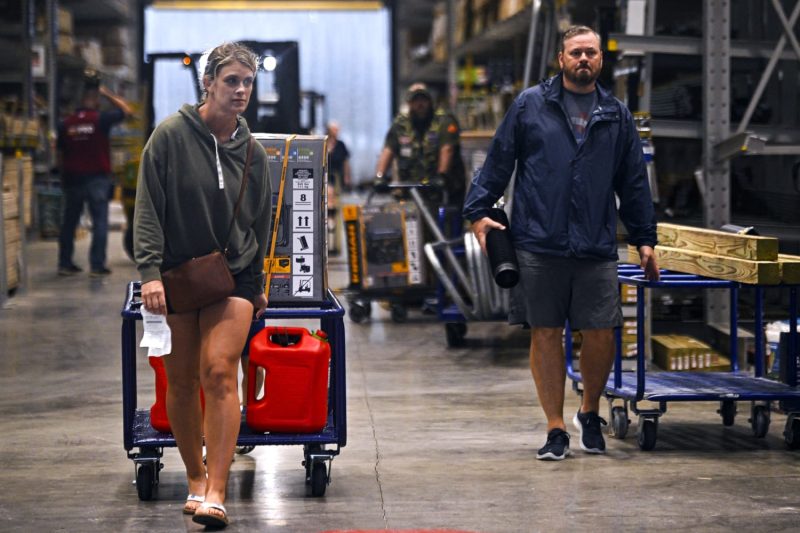
Beware: DOJ and FTC Sound Alarm on Fraud and Price Gouging for Hurricane Milton
Section 1: Understanding the Risks of Fraud and Price Gouging
In times of natural disasters such as hurricanes, the risks of fraud and price gouging increase significantly. The Department of Justice (DOJ) and the Federal Trade Commission (FTC) have warned consumers about these risks, particularly as Hurricane Milton approaches. Fraudulent activities can range from fake charities seeking donations to individuals selling counterfeit or substandard products as essential supplies. On the other hand, price gouging involves sellers unfairly increasing prices during a crisis to take advantage of the high demand for goods and services.
Section 2: Identifying Red Flags and Protecting Yourself
Consumers must remain vigilant and aware of red flags that indicate possible fraudulent or price gouging activities. Some common signs of fraud include unsolicited emails or phone calls requesting donations, offers that seem too good to be true, and sellers pressuring you to make immediate purchases. Price gouging can be identified when essential goods and services are priced significantly higher than usual market rates. It is crucial to verify the legitimacy of sellers and charities before making any financial transactions or donations.
Section 3: Reporting Suspected Fraud and Price Gouging
If you come across any suspicious activities related to fraud or price gouging, it is essential to report them to the appropriate authorities promptly. The DOJ and FTC have established channels for consumers to report such incidents, and filing a complaint can help prevent others from falling victim to scams. Additionally, local law enforcement agencies and consumer protection organizations can assist in investigating and addressing fraudulent practices in your area.
Section 4: Tips for Avoiding Fraud and Price Gouging
To protect yourself from falling prey to fraud and price gouging during emergencies like Hurricane Milton, consider the following tips:
1. Research charities and organizations before donating money or supplies.
2. Be cautious of deals that seem too good to be true.
3. Compare prices from multiple sellers to ensure you are not overcharged.
4. Keep a record of all transactions and receipts for future reference.
5. Stay informed about consumer rights and regulations that protect you from scams.
By staying informed, remaining vigilant, and reporting any suspicious activities, you can help protect yourself and others from fraudulent practices and price gouging during times of crisis.
Section 5: Conclusion
In conclusion, the warnings issued by the DOJ and FTC regarding the risks of fraud and price gouging ahead of Hurricane Milton serve as a reminder for consumers to be cautious and proactive in protecting themselves. By understanding the signs of fraudulent activities, reporting suspicious incidents, and following preventive measures, individuals can minimize the impact of scams and unfair business practices during emergencies. Remember that awareness, diligence, and prompt action are key to safeguarding your finances and well-being in times of crisis.
